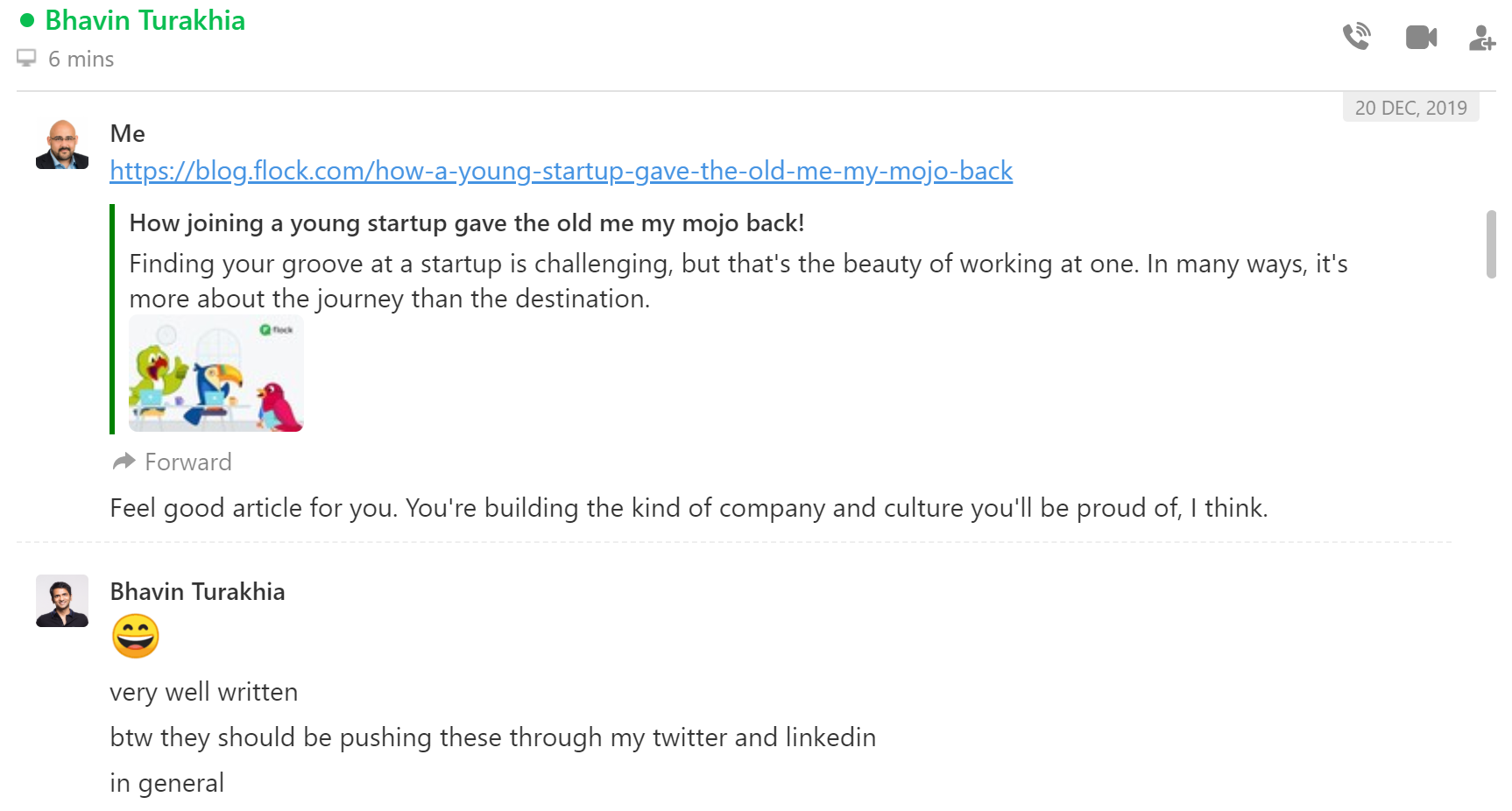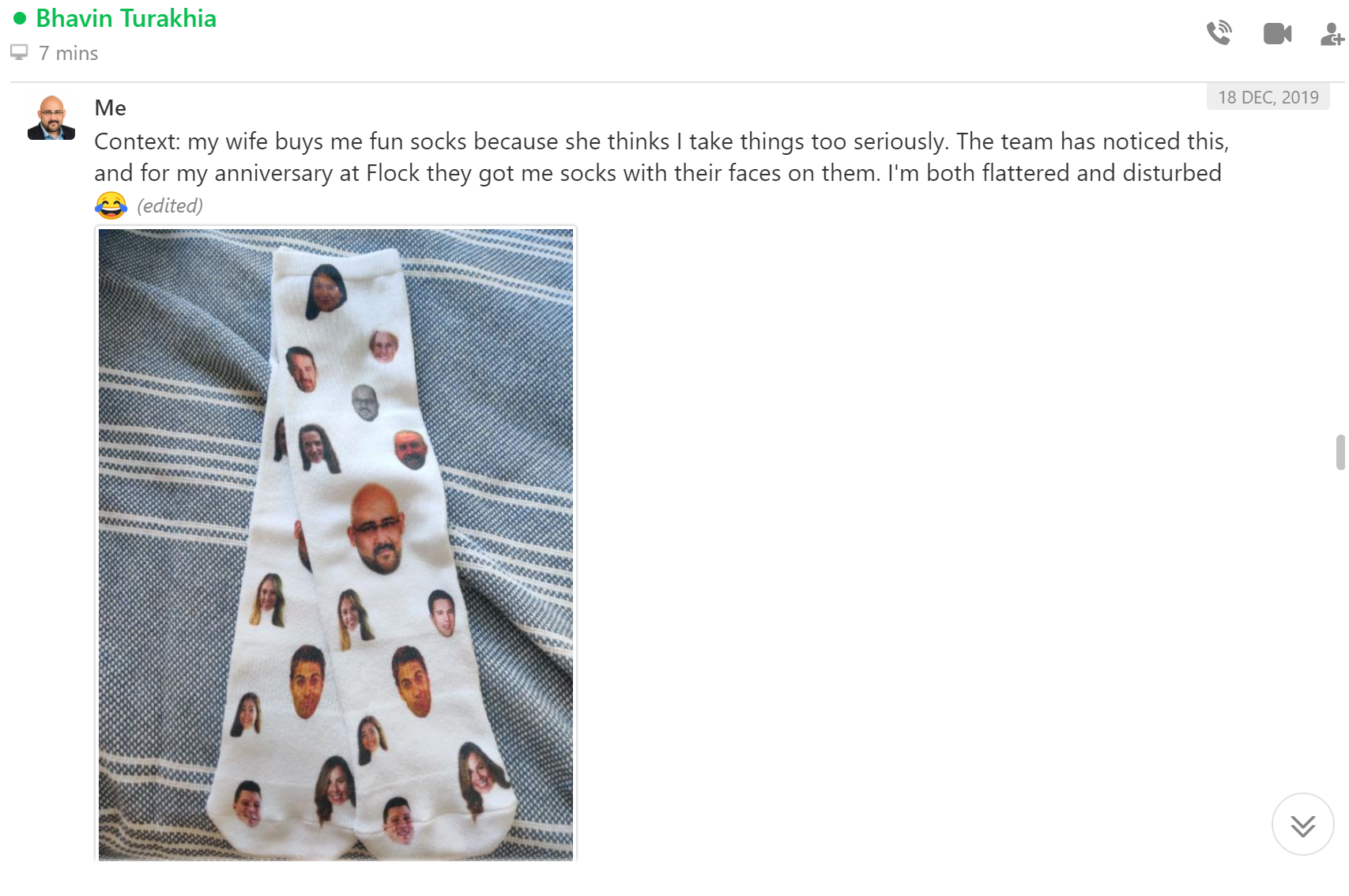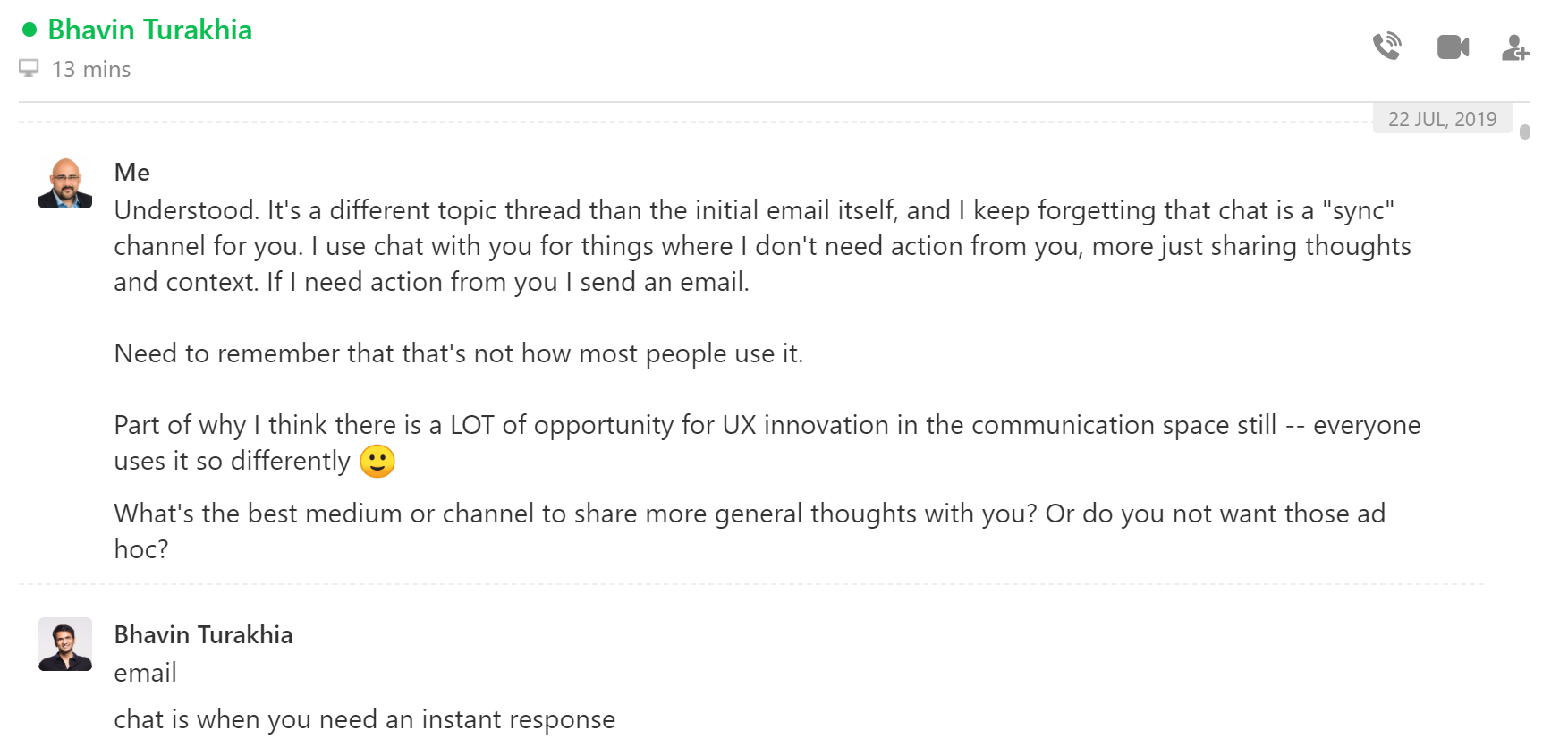
You hear it everywhere these days: email is dead. But can a ubiquitous technology—one that completely transformed the workplace—really be killed off that easily?
Saying something "is dead" is a great marketing tagline, but is it true? SEO is dead. Retail is dead. The internet is littered with reports of death that have been somewhat exaggerated.
Take it from the aptly-named emailisnotdead.com: there are more than 3 billion active email users, and that’s projected to grow to 4.3 billion by 2023. Email isn’t going anywhere. There’s just a greater breadth of communication tools now available to accommodate a greater breadth of communication tasks and styles.
Think about it this way: email is just one tool in a toolbox. It’s used for a single purpose, just like a hammer is used to bang nails. We use communication tools differently for different goals, who we are, and the scenario. This makes communication tools unique in terms of overall productivity tools.
Let’s look at the range of communication tools we have today: email, chat, WhatsApp, SMS, group messaging, even video conferencing… they all serve a different purpose. The problem is that one keeps trying to replace the other instead of working together to become more than the sum of their parts. Using email, chat, and async tools like Jira can be more efficient than just using one tool to try and do all things. There's no "One Notification to Rule Them All". Consider leveraging tools like email finder to enhance your communication strategies, ensuring a comprehensive approach that aligns with diverse communication preferences and needs.
So what’s leading people to “kill” email altogether? Culture and skill. Just take a look at the numerous articles about how chat has destroyed people's lives at work. It's not JUST about the tools, it's about the culture and skills that we have as communicators.
There’s no standard answer for what communication style and tool works best for everybody. As a function of culture, once you acknowledge that part of your job is being good at communication, then you can focus on the skills you need to communicate better with everybody.
Communication 101… 102… and 103
Our CEO Bhavin and I definitely don’t align on communication style. For him, anything urgent should be sent via chat. If it doesn’t require an immediate response, he prefers to get to it on his own time through email.
Meanwhile, I know I’ll see an urgent message either way—but on messenger, I can tackle smaller nuggets in a rapid back-and-forth. For me, chat serves the same purpose as a conversation—it's just a conversation that I can get back to whenever I have time. I can use chat for single thoughts I just want to share or for a longer conversation, but as long as context-switching doesn't ruin the conversation, I like to keep it in messenger. Take a look at this quick “FYI” message, for example:

I wouldn’t have emailed this to Bhavin, and certainly wouldn’t have brought it up in a meeting, but because I was able to send it over in the moment, it led to another action item—one that wouldn’t have come up if I hadn’t shot this over as a quick note. I use email for larger topics that require thought. My rule of thumb: don't write a chat that’s 100 words, and don't email only 50 words. But that doesn’t mean it’s impossible to work with Bhavin. He and I are human beings with a friendship as well as professional colleagues with work to do:
 Some people process things differently. It comes down to thinking about your audience and the goal of the communication. I haven’t sent Bhavin a chat since October. But next week we have a call to go over a presentation and he wants to dig into the deck and understand it before we meet. To me, that’s superfluous, but it’s how he understands things and I need to communicate with him that way. Recognizing what works for some may not work for others is the core of good communication. Email isn’t the problem here. What breaks down is when people need to communicate differently.
Some people process things differently. It comes down to thinking about your audience and the goal of the communication. I haven’t sent Bhavin a chat since October. But next week we have a call to go over a presentation and he wants to dig into the deck and understand it before we meet. To me, that’s superfluous, but it’s how he understands things and I need to communicate with him that way. Recognizing what works for some may not work for others is the core of good communication. Email isn’t the problem here. What breaks down is when people need to communicate differently.
It all boils down to this: professionals in general suck at communication because they only look at things through their lens. By definition, your communication can’t be effective if it's not something that works for the other person as well. The more senior you are, the greater a responsibility you have to ensure that you get your message across effectively by customizing your communication style and medium to the audience. Too many people look at it the other way around: “I'm the manager, so it's the responsibility of the junior employee to figure out how to communicate with me.” People junior to you almost universally have less experience with communicating, so the responsibility is the other way around.
Generally, when I’m deciding a means to chat with someone, I ask myself one simple question: am I wasting your time sending a novel-length email that could have been a one-line chat? At the end of the day, you’re still sending an electronic text message with a recipient and a sender. The only difference is removing the concept of the subject line and the means of delivery. The underlying technology and behavior aren’t necessarily what's fundamentally changed… it’s all about how we deliver the message.
And sometimes the best way to improve your communication with someone is to ask:

In the end, that’s where many leaders—and their teams—fall short. It’s not about email or killing email at all. It’s about knowing who you’re communicating with and the best way to communicate with them.
Wouldn’t it be great if, rather than “killing email,” we created a business communication culture oath?
Say it with me:









